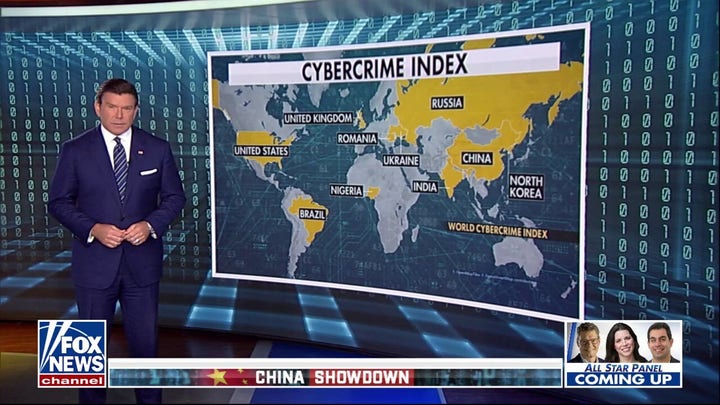The Chinese Communist Party (CCP) is growing more brazen by the day in its aggressive spying right here in the United States and pre-positioning for cyberattacks on our critical infrastructure. Recent reporting that China-sponsored hackers compromised America’s major cellular network providers should be the last straw. It is time for Congress and the incoming Trump administration to impose escalating costs to deter the CCP.
According to reports, the People’s Republic of China (PRC) state-sponsored cyber actors compromised more than a dozen telecom providers — including America’s major cellular networks — capturing real-time phone call audio and text messages and stealing the data of millions of Americans. Federal authorities have described this CCP targeting effort as a ‘broad and significant cyber espionage campaign’— one that continues, as these CCP-affiliated actors are still in our telecommunications networks today.
China appears to have targeted President-elect Donald Trump, Vice President-elect J.D. Vance and staffers of Vice President Kamala Harris’s campaign. However, the total number of victims is unknown, and the list of known targets continues to grow.
The breach of these cellular networks means that the data, text messages and phone calls of many regular Americans have likely been siphoned off for use by our foremost foreign adversary, the CCP.
This attack on American sovereignty should not come as a surprise. For too long, the CCP has paid no real price for its increasingly aggressive intrusions into our homeland.
For years, the CCP has operated secret police stations right here in the United States, using them to persecute Americans on U.S. soil if they dared to challenge the party’s line.
When China flew a spy balloon across the entire United States, the Biden administration watched and tolerated the balloon’s overflight for days — and China paid no price diplomatically, economically or otherwise for the intrusion.
A year after the spy balloon fiasco, top cybersecurity officials told Congress that Volt Typhoon, a PRC state-sponsored cyber actor, had burrowed in our critical infrastructure for at least five years. This includes the services Americans depend on daily, such as water providers, electric grids, oil and gas pipelines and transportation infrastructure.
Volt Typhoon’s use of ‘living off the land’ techniques marked a shift in China’s tactics — one that has made them harder to detect. As a result, Volt Typhoon can disrupt our critical infrastructure at any time, wreaking havoc across the country and potentially putting American lives in peril.
In the face of each brazen attack, the Biden administration played defense. It is past time to hit back.
The CCP’s spying campaign will continue to escalate until we impose real costs on the Chinese Communist Party to make the CCP think twice before targeting the United States.
Sending a message of American strength will require Congress and the incoming administration to respond by imposing escalating costs on the CCP that are directly targeted at the party’s core interests.
Even as it pursues the world’s largest military build-up, the Chinese government still spends more on internal security than national defense, pointing to the party’s fundamental insecurity about its ability to exert its will over the Chinese people.
Our policy options should target this vulnerability, including by rapidly escalating sanctions against top CCP officials who are involved in human rights abuses, such as the genocide against the Uyghurs. Existing authorities should be used to impose costs on China’s national economic champions, whose successes are seen as vital to the party’s interests. Finally, we should expose the personal fortunes and malign activities of senior CCP officials and deny visas to their families and associates. These actions could impose real costs that could change future calculations.
We must also be unafraid to pursue cyber-enabled options to counter CCP espionage and targeting of critical infrastructure. For example, the President should give our government cyber operators greater latitude to conduct offensive operations.
At the same time, the U.S. needs to get its own cyber house in order. Our sclerotic cyber threat notification system is broken and needs radical changes to operate at the speed and scale of the evolving threat landscape. We need clear rules for the private sector that incentivize timely information sharing and appropriately hold companies accountable for failures to protect their systems and their customers’ data.
Volt Typhoon’s use of ‘living off the land’ techniques marked a shift in China’s tactics — one that has made them harder to detect. As a result, Volt Typhoon can disrupt our critical infrastructure at any time, wreaking havoc across the country and potentially putting American lives in peril.
Cybersecurity teams must aggressively seek out and fix the most dangerous risks to their networks. We also need to empower private sector threat hunters to aggressively seek out intelligence so they can get ahead of the threat, rather than simply playing whack-a-mole against China’s relentless intrusion attempts.
Defending America on U.S. soil and in the digital realm goes beyond firewalls and regulations. It requires a strategic shift that prioritizes consequences over containment.
As the threat of CCP’s aggression continues to grow, it is clear that America’s security cannot rely on defensive measures alone. The time has come for the Executive Branch to respond with targeted but decisive actions that impose actual costs on the CCP.
Rep. Mark Green, a Republican, is a physician and combat veteran of Afghanistan and Iraq, where he served three tours. He interviewed Saddam Hussein for six hours on the night of his capture. He is chair of the House Homeland Security Committee and serves on the House Armed Services and Foreign Affairs Committees.

